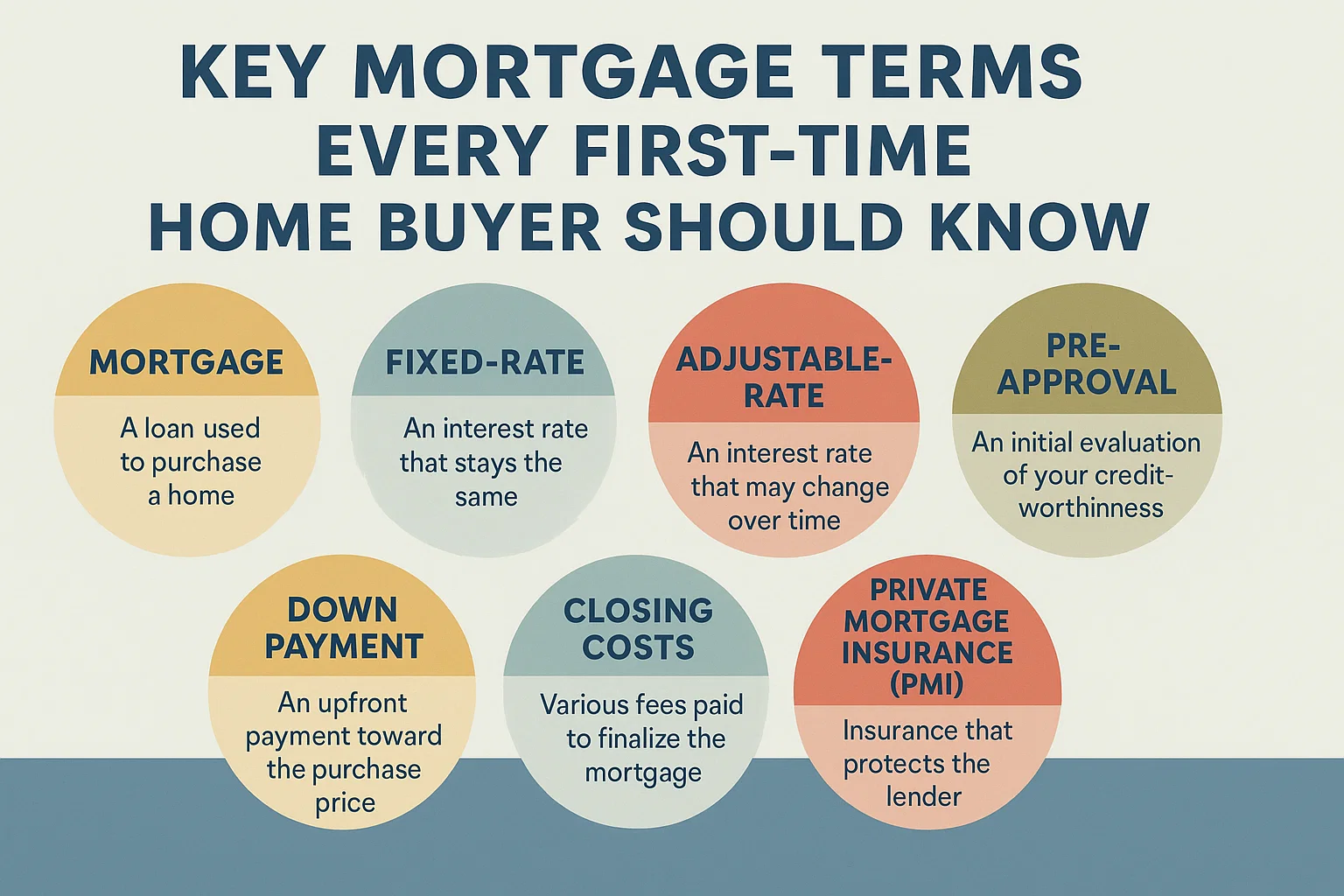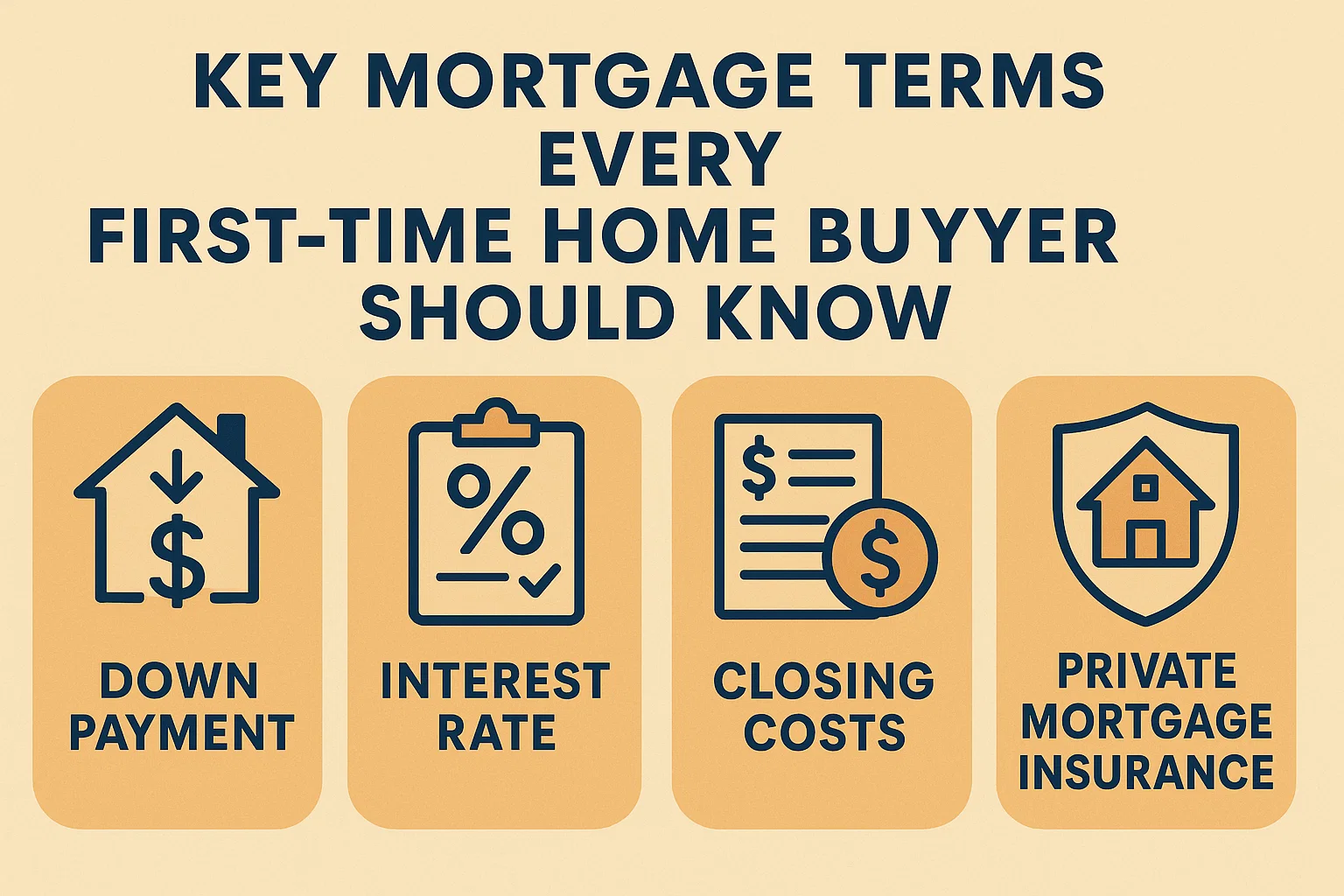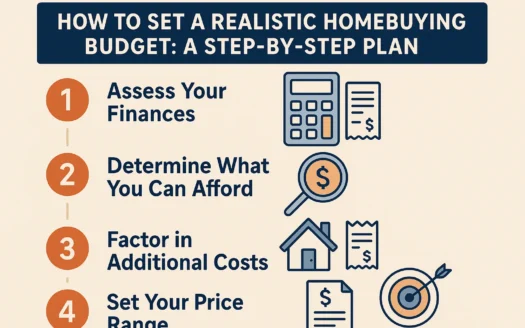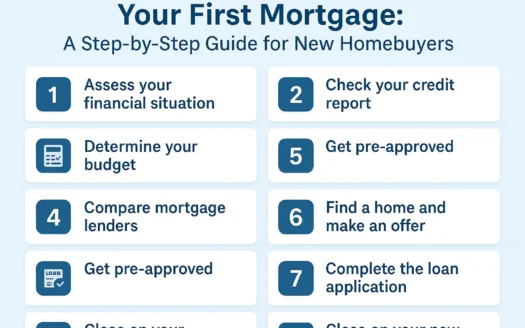Key Mortgage Terms Every First-Time Home Buyer Should Know

Photo Credit: Fabian Blank from Unsplash
Key Mortgage Terms Every First-Time Home Buyer Should Know
When you’re a first-time home buyer, you may encounter many new and sometimes confusing words and phrases relating to real estate transactions. Even if you have a real estate professional assisting you, it’s important to familiarize yourself with the terminology to better understand the home-buying process. Below are definitions of essential mortgage-related terms:
Adjustable-Rate Mortgage (ARM)
Also known as a variable-rate or floating-rate mortgage, this loan has an interest rate that changes after an initial fixed period. ARMs often feature low introductory rates, making them ideal for buyers planning to sell before the rate adjusts. Annual rate changes are typically capped.
Affidavit of Title
A legal document provided by the seller confirming there are no unresolved legal issues tied to the property. Buyers can use this affidavit to defend against future claims.
Amortization
The process of paying off a debt through fixed payments over time. For mortgages, it refers to how your loan balance decreases as you make payments.
Assets
Property or items of value owned by a borrower, which can be used as collateral for a loan.
Closing
The final step in a real estate transaction where ownership is transferred. Both parties sign documents related to financing, title insurance, and closing costs. Also called settlement.
Collateral
An asset (like a home) used to secure a loan. Lenders assess a property’s sales price and appraised value to determine collateral value.
Construction-to-Permanent (C2P) Loan
A loan that converts from construction financing to a traditional mortgage after home completion. This option streamlines the process with one approval and closing.
Debt-to-Income Ratio (DTI)
A percentage comparing monthly debt payments to gross income. Lenders use DTI to assess loan eligibility, with 40% or lower generally preferred.
Delinquent Mortgage
A mortgage with missed payments. Prolonged delinquency can lead to foreclosure.
Earnest Money
A deposit (1–3% of the purchase price) made by the buyer to show commitment. Held in escrow until closing, then applied to the down payment.
Equity
The difference between a home’s market value and the remaining mortgage balance. Equity grows as you pay down the loan and the property appreciates.
Federal Housing Administration (FHA)
A government agency offering loans with low down payments and flexible credit requirements. Part of the U.S. Department of Housing and Urban Development (HUD).
FHA Loan
A mortgage insured by the FHA, featuring lower interest rates and accessible terms for qualifying buyers.
Fixed-Interest Mortgage
A loan with a consistent interest rate and payment schedule over its lifetime, ideal for long-term budgeting.
Good Faith Estimate (GFE)
A document detailing estimated loan costs, including fees and interest rates. Lenders must provide a GFE within three business days of application.
HUD-1 Settlement Statement
A form itemizing all transaction costs for buyers and sellers, reviewed before closing. Also called a closing statement.
Lien
A legal claim on property to secure debt repayment. Mortgages are sometimes structured as liens.
Interest-Only Loan
A loan where payments cover only interest for a set period (e.g., 5–10 years). Principal payments begin afterward.
Mortgage
A legal agreement where the lender holds property as collateral until the loan is repaid. Defaulting can lead to foreclosure.
Non-Compete Clause (NCC)
A contract restricting parties from engaging in competitive activities. Also called a covenant not to compete (CNC).
Preapproved
A lender’s conditional commitment to provide a loan up to a specific amount after verifying the buyer’s finances.
Prepaids
Upfront costs at closing, such as insurance and property taxes, paid into an escrow account.
P&I (Principal and Interest)
The core components of a mortgage payment. PITI includes taxes and insurance.
Points
Fees paid to lower the loan’s interest rate. One point equals 1% of the loan amount.
Sales Contract
A legally binding agreement outlining terms for purchasing property. Also called a contract of sale.
Short Sale
A sale where proceeds fall short of the mortgage balance, requiring lender approval to avoid foreclosure.
Single-Close Financing
A loan combining construction and permanent financing. Benefits include one closing and fixed payments. Also known as a C2P loan.
Title
A legal document proving ownership of a property, recorded in public records.
Underwater Mortgage
When a mortgage balance exceeds the home’s market value, requiring the seller to cover the difference.
VA Loan
A mortgage guaranteed by the U.S. Department of Veterans Affairs, offering zero-down financing to eligible veterans and spouses.




